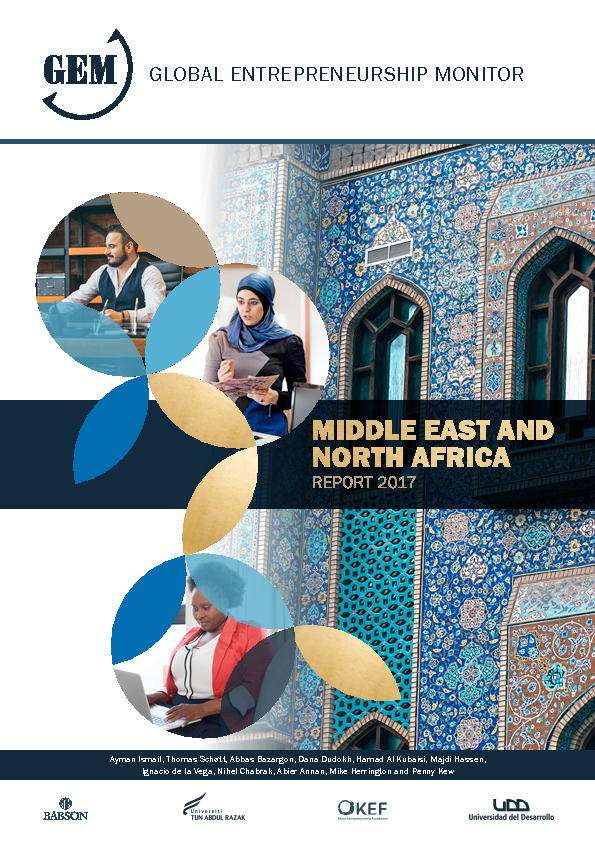Almost three-quarters of people in the Middle East and North Africa (MENA) region see entrepreneurship as a good career choice and 38% of the adult population express intentions to start a business. This is higher than the averages for all other world regions.
However, these positive markers are not translating into a robust entrepreneurial ecosystem in the region.

The GEM 2017 MENA Regional Report, which draws on data from the 2015 and 2016 GEM national surveys, reveals that there is a marked drop off between intending and active entrepreneurs. The number of total early-stage entrepreneurs (TEA) in the MENA region is 70% lower than the number expressing entrepreneurial intentions. Just 10.8% of the adult population had started a business in 2016.
Additionally, the MENA region had the lowest rate of established entrepreneurs compared to other regions (6.8%) and a high rate of business discontinuance at 6.2%. For every person exiting a business in MENA there were only 1.7 people engaged in early-stage entrepreneurial activity. The global average is one person to every three.
“The MENA region has experienced significant economic and social losses from poor economic management and conflicts since the 2011 Arab Spring,” said lead author of the report Ayman Ismail, Abdul Latif Jameel Endowed Chair of Entrepreneurship at the American University in Cairo School of Business. “Our research shows that there is an urgent need to deploy the region’s substantial human, natural, and financial assets more efficiently through adopting economic and social policies that create long-term sustainable and inclusive economic growth.”
Gender disparity is also key concern in the region. Women in the MENA region were only half as likely to be engaged in TEA (Total Entrepreneurial Activity) as their male counterparts, the report found. In Africa, Latin America and the Caribbean, in contrast, eight women were engaged in TEA for every ten male entrepreneurs.
Gender parity was stronger in Qatar and Saudi Arabia, where there were around eight women for every ten male entrepreneurs. Jordan, by contrast, reported the widest gender gap, with fewer than three women entrepreneurs for every ten men.
Of interest is the fact that in six of the nine MENA countries surveyed, women entrepreneurs were more likely to be motivated by opportunity than men. This puts them on a par with female entrepreneurs in Europe and suggests that developing women entrepreneurs in the region would result in more opportunity-driven businesses that are more likely to last and create jobs.

Towards better policy
The report recommends extensive policy shifts to facilitate a more enabling environment for entrepreneurs.
"The opportunity to leverage change exists mostly in the under developed SME sector, as many of the larger organisations in the region have achieved international status and a high degree of competitiveness,” said Mike Herrington, co-author of the report and Executive Director of GEM. “In ten of the twelve entrepreneurship areas considered by GEM to be important to foster entrepreneurship growth in a country the MENA experts report scores below the GEM average."
He added that the report’s recommendations would help policymakers and business leaders put into place precise, practical and targeted solutions to address each area of concern.
“It is difficult to propose a ‘one solution for all’ approach,” noted Herrington. “However, the research did flag three key areas that would benefit the region overall if given attention: education, the regulatory environment, and strategies to uplift women.”
Other areas needing attention are school-level entrepreneurship education and R&D transfer. The MENA experts reported average ratings for existing government policy on taxes and bureaucracy, government entrepreneurship programmes, and market burdens or entry regulations.
Download the GEM 2017 MENA Regional Report

